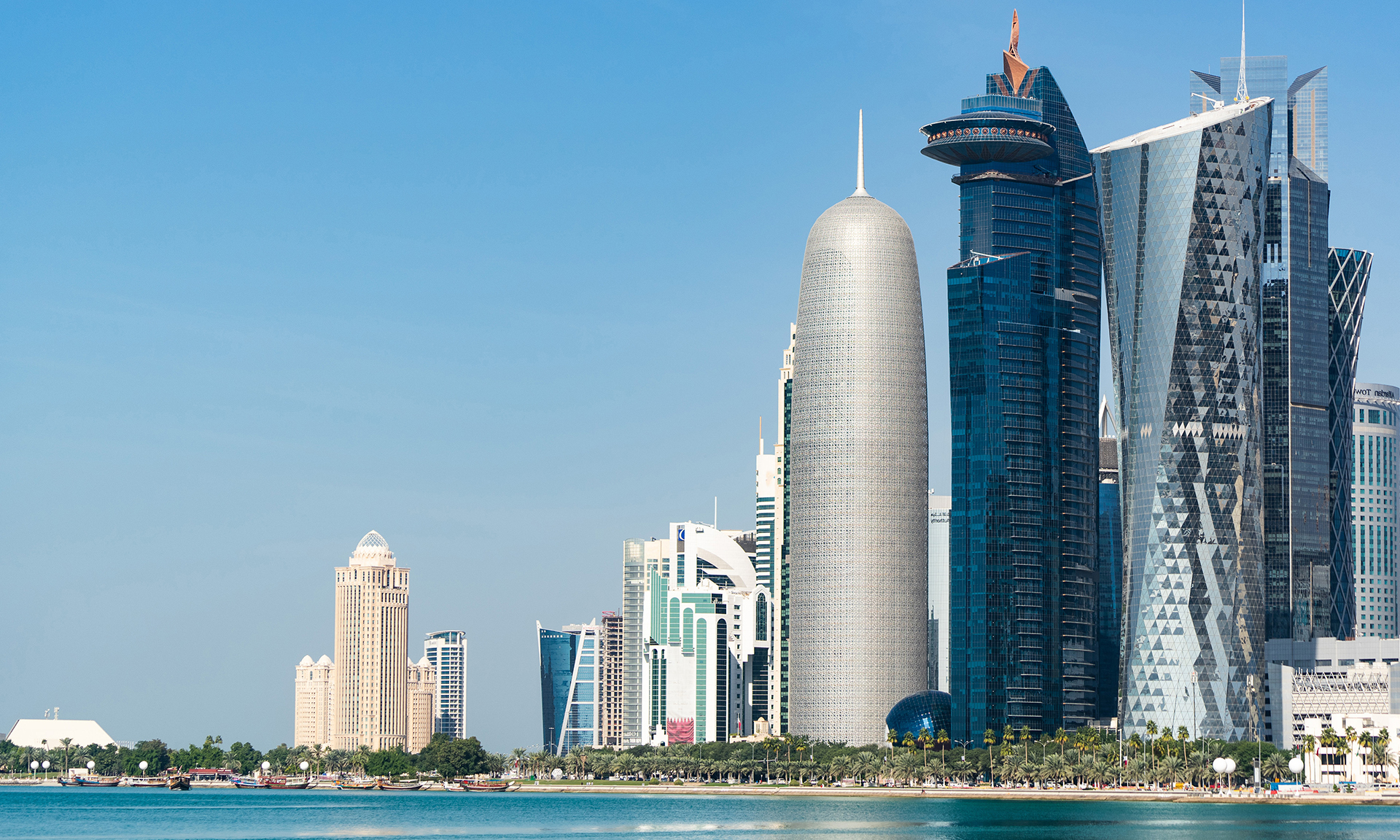Qatar is one of the fastest growing economies in the world and attracts high overseas investments in infrastructure, healthcare, education, tourism, and financial services sectors. The FDI inflow rose by 8.2 million USD during the September quarter of 2021.
The World Bank’s 2020 Doing Business Report ranked Qatar as the 3rd best globally with a tax regime offering one of the lowest corporate tax rates,10% in the world with no personal income tax.
Qatar also offers good infrastructure facilities, a lower cost of energy and a cheaper labour force. On the eve of the FIFA World Cup 2022, the Qatar government has also come up with various incentives for local and foreign investors. Qatar remains politically stable with one of the highest per capita incomes in the world. An investment-friendly business ecosystem, full foreign ownership in all sectors, presence of extensive economic zones with a complete tax exemption and repatriation benefits of both capital and profit and stable currency also favour foreign investors in doing business in Qatar.
The increased FDI inflows are largely contributed by the US, Japan, South Korea and Singapore and primarily through foreign company formation in Qatar in the oil and gas, construction, public works and financial services sectors.
As Qatar aims higher in terms of business and foreign investment growth, the government brings in several landmark reforms to facilitate the same. The year 2018 witnessed the government allowing non-Qatari investors to own 100% capital in all sectors and many listed companies on Qatar Stock Exchange increased their foreign ownership limit to 49%.
The government plays a pivotal role in Qatar’s economy by encouraging economic diversification and private investment in many non-oil sectors. The government has also embraced reforms to encourage foreign investment in the economy as part of its National Vision 2030.
Qatar Ministry of Economy and Finance also rolled out a new Public Finance Law (Law No. 2/2015) for optimizing the use of public funds and implementing international best practices and standards in the country’s financial framework. Recent reforms also include the implementation of a regulatory regime to eliminate corruption and anti-competitive practices in the country’s financial system.
Qatar has two free zones namely Ras Bufontas free zone and Umm AlHoul free zone and Qatar Free Zones Authority (QFZA) is responsible for providing foreign investors with business opportunities and benefits. The country also has Qatar Financial Centre and Qatar Science and Technology Park as business facilitation centres and entered into more than 49 bilateral trade and investment agreements.
“Qatar has put tremendous emphasis on developing a sustainable investment ecosystem,” noted Nasser Ali Al-Kaabi, Investor Relations Officer at the Investment Promotion Agency of Qatar (IPA Qatar) during the US Qatar Business Council meeting on June 29.
He also highlighted, “The country has put a large emphasis on developing top notch infrastructure and incentives to ensure foreign investors have what they need to take advantage of the strong domestic market and wider region as well.”






















 IMC Group
IMC Group